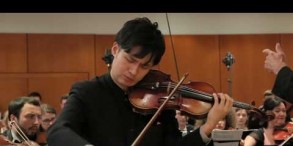World's First Cross-Transplant with iPS Cells Kicks Off
Japan's Ministry of Health, Labour and Welfare approved at its review committee February 1 the world's first clinical research for the treatment of Macular degeneration, grave eye disease, using iPS cells provided by Prof, Shinya Yamanaka of Kyoto University.
Prof. Yamanaka and his group have managed to breed special iPS cells in large numbers to help bring down the overall cost of operation which otherwise aggregates up to tens of million yen.
Experts agree that, if successful, the cross-transplant can be a ray of hope for regenerative medicine.
This clinical research aims at utilizing immunological rejection-free iPS cells to regenerate the retina tissues for the treatment of a grave eye disease called Macular degeneration.
Kobe's Institute of Physical and Chemical Research, Central Community Hospital of the Kobe City Medical Center, Kyoto University and Osaka University had applied earlier in October last year and won approval this time.
The ministry's Review Committee deliberated twice on ethical and technical aspects of the application and found the scheme satisfactory in the light of all governing standards of regenerative medicine.
This concluded the state's review and the research team is now to embark, subject to the ministry's green light, on screening out patients for the clinical research. The world's maiden iPS-based cross-transplantation is due to materialize soonest within the first half of the year.
Three years ago, Masayo Takahashi and her project group of the Institute of Physical and Chemical Research initiated a clinical research to produce iPS cells from a patient of Macular degeneration and turned them to retina cells for transplantation. So far no signs of irregularities are reported.
Producing iPS cells singularly from each patient takes over half a year and costs up to tens of million yen. Furthermore, the scheduled second operation is postponed on account of a few cases of mutation in the iPS genes.
So, the start of a cross-transplantation clinical research is no doubt a solid breakthrough in regenerative medicine. (Nathan Shiga)
Source: NHK









